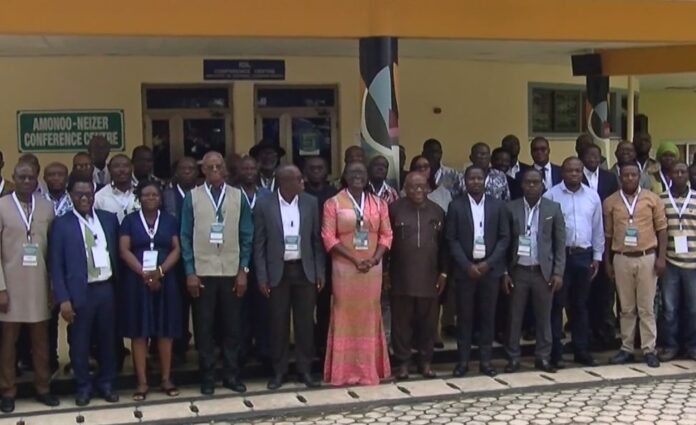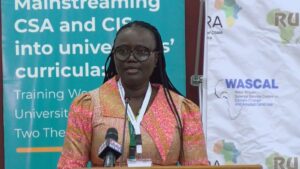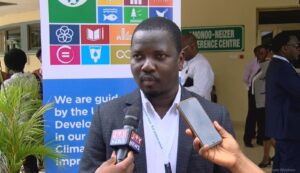In a decisive step towards mainstreaming climate change education across African universities, the West African Science Service Centre on Climate Change and Adapted Land Use (WASCAL) is hosting a three-day training workshop at the Kwame Nkrumah University of Science and Technology (KNUST).
The initiative, under the Accelerating the Impact of CGIAR Climate Research for Africa (AICCRA) project, aims to empower university lecturers with cutting-edge knowledge in climate smart agriculture and climate information services.
The event marks a major leap in integrating climate change into higher education curricula across West Africa. Over 50 lecturers and researchers from across the continent gathered for the workshop.
Speaking at the opening ceremony, Vice-Chancellor of KNUST, Prof. Rita Akosua Dickson, emphasized the strategic importance of the training.
“It is all joy to be part of this very important program. The Regional Universities Forum (RUFORUM) and WASCAL are expected to develop curricula in Climate Smart Agriculture and Climate Information Services to be mainstreamed into university programs by training lecturers and researchers,” she said.
The goal, according to organizers, is to train lecturers and also ensure university leadership embraces and promotes the newly developed modules.
These include topics such as pest and disease management under climate stress, disaster risk management in crop and livestock production, and soil carbon sequestration.
“We want every student coming out of university to understand climate change and its impacts. That’s why we are training the lecturers, so they can pass on this critical knowledge to an entire generation,” explained Prof. Konè Daouda, Director of the Capacity Building Department of WASCAL.
This initiative builds on WASCAL’s longstanding contribution to climate education. To date, the WASCAL Climate Change and Land Use program at KNUST has produced 41 PhD graduates, with 10 more expected to graduate this year.
Over 300 scientists have also earned their master’s and doctoral degrees through WASCAL’s international and national programs.
Director of WASCAL-KNUST, Prof. Wilson Agyei Agyare, highlighted the university’s purpose in climate education.
“KNUST plays a key role, involving 13 departments in training students. With the WASCAL centre, we are not just focusing on PhD-level training. We are now extending our reach to master’s and undergraduate levels as well,” he emphasized.
The workshop also showcased innovative technologies, including artificial intelligence, developed to tackle climate challenges. Participants are being urged to adopt and champion these tools in their teaching and research.
From the Alliance of Biodiversity International and CIAT, Dr. Alcade C. Segnon, revealed that 11 specialized modules have been developed by expert teams, reviewed, and finalized.
“A group of experts on each of the topic has been selected and then developed those modules and have gone for review process and now finalized. These modules are complementary and fill critical gaps in university teaching. This training ensures they are not only disseminated but effectively used,” he said.
As climate change continues to threaten food security, livelihoods, and ecosystems across Africa, this strategic investment in training educators at the tertiary level signals a hopeful, sustainable future.





